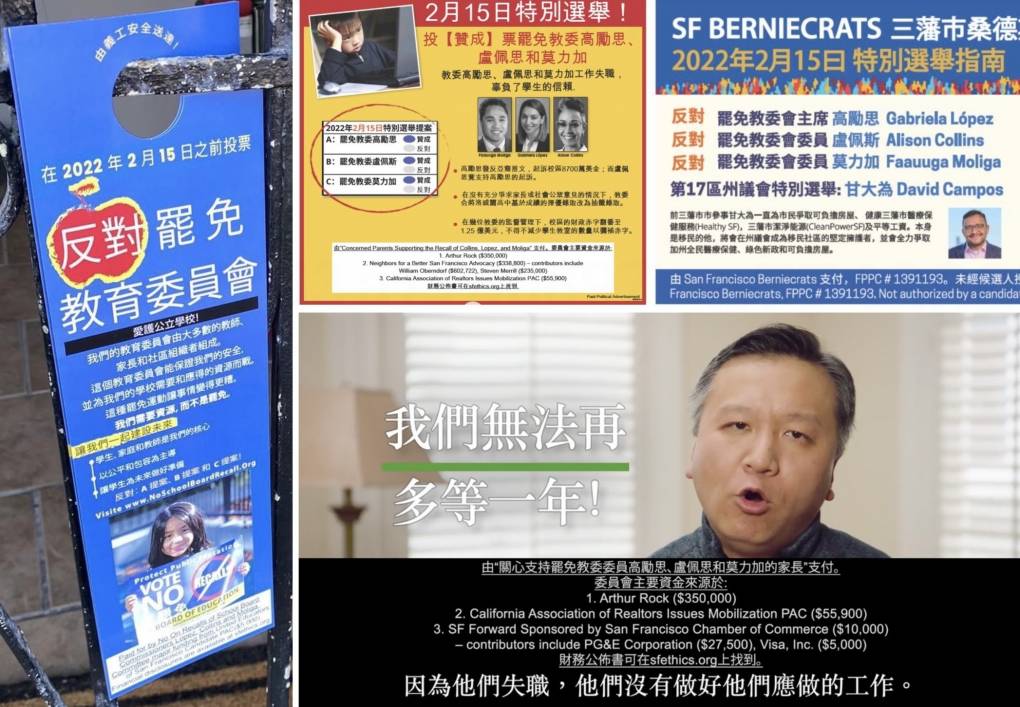San Francisco voters overwhelmingly embraced the recall of three school board commissioners in an election that bitterly divided the city and attracted a record amount of political spending, nearly all of it in favor of the recall.
Despite the heated rhetoric of the campaign, the vote didn't appear to be even close: More than 70% of voters backed the recall of all three officials: Board President Gabriela López and members Alison Collins and Faauuga Moliga.
Collins, the most controversial of the three, is facing the largest margin of defeat.
Recall supporters were jubilant, including Siva Raj, who launched the campaign just months after moving to the city from Pleasanton and enrolling his children in the district.
"I think more than anything else, it feels like the city of San Francisco has come together to make this happen," he said, adding that the early results "are real affirmation that people in San Francisco genuinely care about our kids, genuinely care about helping the kids who are falling behind, genuinely care about having elected leaders who focus on education."

But López charged that recall supporters took advantage of an unusually timed election and far lower turnout. She immediately said she would run again in November during the regularly scheduled school board election.



